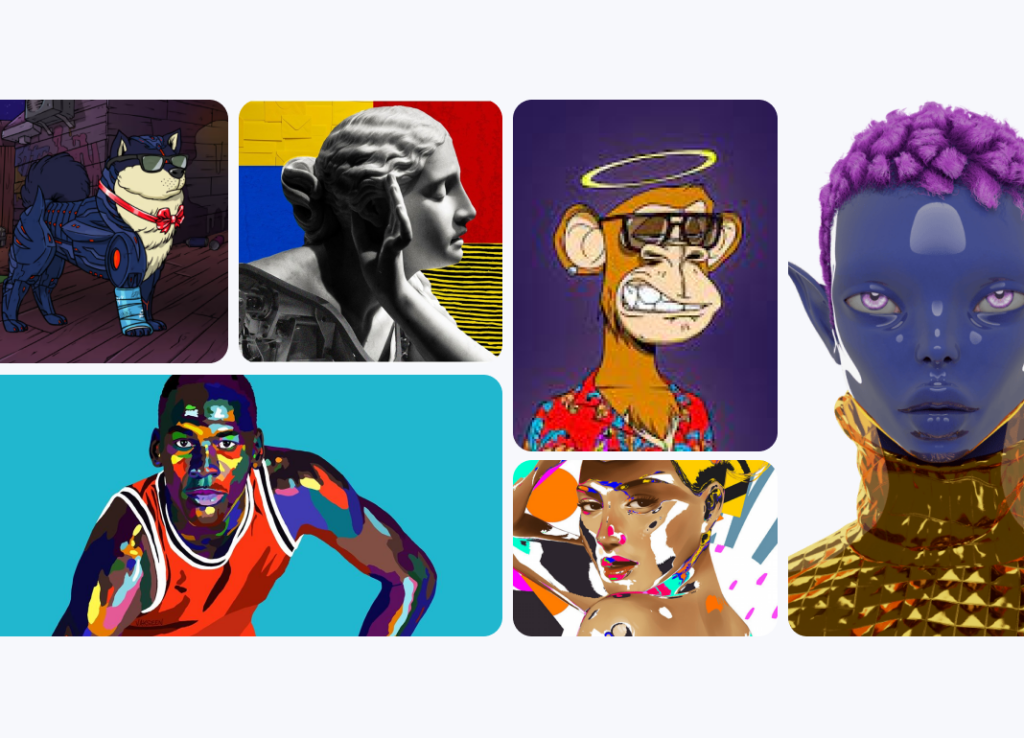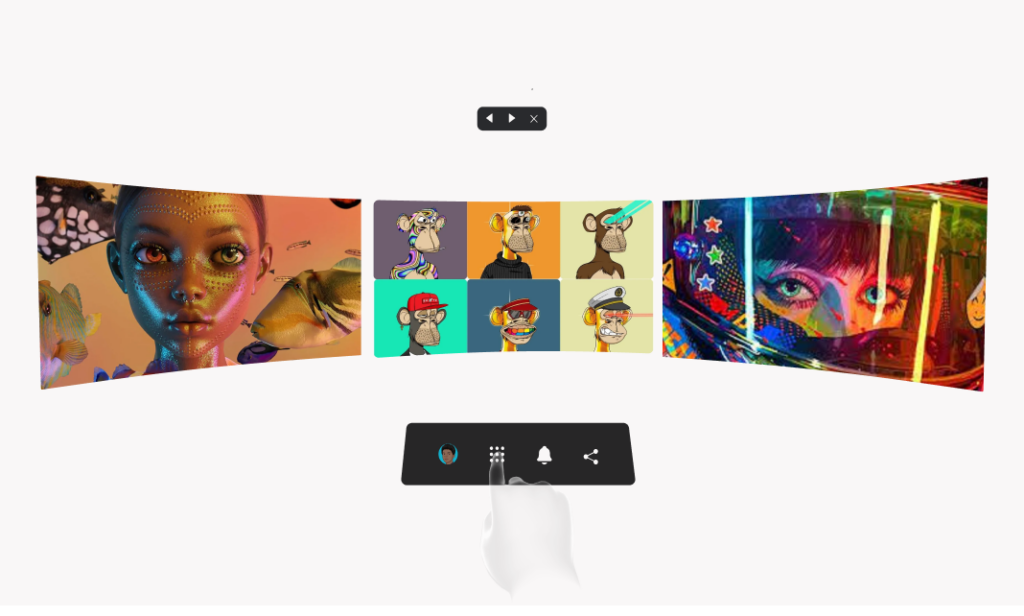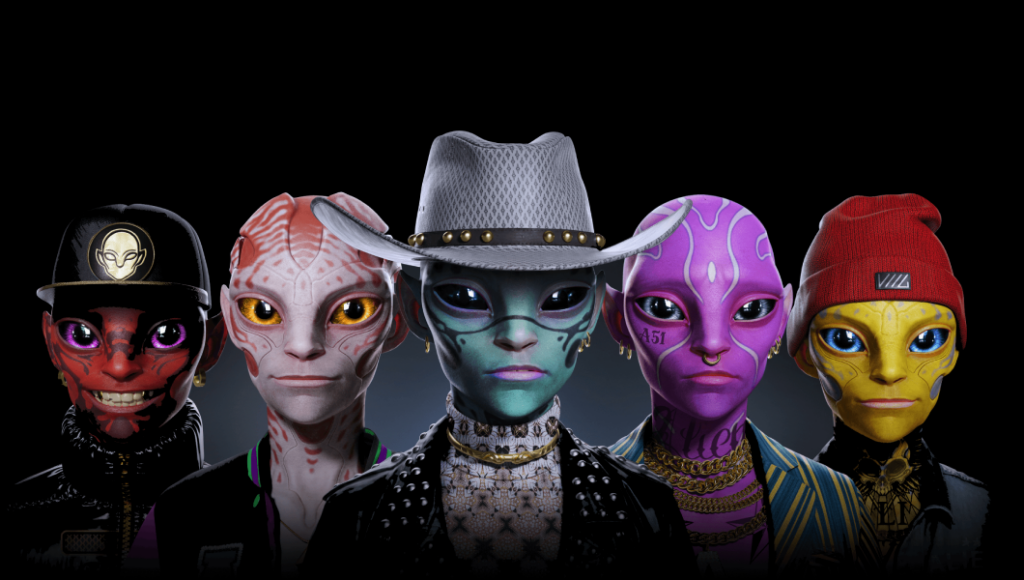
Non-fungible tokens (NFTs) have been making headlines over the past year due to their unique ability to represent digital assets such as art, music, videos, and even tweets. NFTs are a type of cryptographic token that is stored on a blockchain, providing ownership and provenance of digital assets. The use of blockchain technology ensures the transparency, immutability, and traceability of NFTs. The popularity of NFTs is skyrocketing, with some digital artworks selling for millions of dollars. But what does the future hold for NFTs and the blockchain ecosystem?
In this blog post, we will explore the current state of NFTs and the blockchain ecosystem, potential future developments, implications for the art world and other industries, challenges, and limitations, and conclude with final thoughts on the future of NFTs and blockchain technology.
Current State of NFTs and Blockchain Ecosystem
The current state of NFTs and blockchain technology is rapidly evolving and expanding. NFTs have gained significant attention and popularity in recent years, with high-profile sales of digital art and collectibles reaching millions of dollars.
Many established companies and organizations are also exploring the use of blockchain technology and NFTs. For example, the NBA has launched a platform for buying and selling NFTs of iconic basketball moments. Luxury brands such as Gucci and Louis Vuitton are experimenting with NFTs for virtual fashion items.
In addition to the art and collectibles market, NFTs are also used in the gaming industry. Blockchain-based gaming platforms allow players to earn and trade NFTs for in-game items and currency, creating new revenue streams for game developers and players.

Outside of entertainment and gaming, blockchain technology is also being explored in fields such as supply chain management, voting systems, and real estate. Blockchain technology’s decentralized and transparent nature allows for secure and efficient management of transactions and data.
However, there are also concerns and criticisms of the current state of NFTs and blockchain technology. Some argue that the hype around NFTs is driven more by speculation and investment than the actual value of the underlying digital assets. Others have raised concerns about the environmental impact of blockchain technology, as the mining and validation process requires a significant amount of energy.
Potential Future Developments
The potential applications for NFTs are virtually endless. Some of the most promising use cases include virtual real estate, ticketing, identity verification, and gaming items. As blockchain technology advances, we expect new and innovative use cases to emerge.
Advances in blockchain technology could also lead to more efficient and secure transactions, making NFTs more accessible to the mainstream. Integration with other technologies, such as artificial intelligence (AI) and virtual reality (VR), could open up new possibilities for NFTs in industries such as entertainment and education.
New marketplaces and platforms are also emerging, providing artists and creators more opportunities to sell their NFTs. The emergence of social media platforms that support NFTs, such as TikTok and Twitter, could also play a significant role in the future of NFTs.
Implications for the Art World

One of the most significant implications of NFTs is their impact on the traditional art market. NFTs provide artists a new way to monetize their digital artworks and gain recognition for their work. NFTs also allow for greater transparency and provenance, which is crucial in art.
However, there are also challenges and considerations for artists and collectors when it comes to NFTs. For example, the lack of regulation and standardization in the NFT market could lead to issues with authenticity and copyright infringement. Additionally, the high transaction fees associated with NFTs could make it difficult for emerging artists to participate in the market.
Implications for Other Industries
NFTs also have significant implications for other industries. In the gaming and entertainment industries, NFTs provide a new way to monetize virtual items and assets. Real estate and property ownership could also be transformed by NFTs, allowing for fractional ownership and transparent transactions. In the financial and banking systems, NFTs could potentially transform the way we think about assets and ownership, leading to new financial products and services.
NFTs also have the potential to impact social media and digital identity. NFTs could provide a way for individuals to own and monetize their social media content, creating a more equitable and transparent system for content creators. Additionally, NFTs could be used for digital identity verification, improving security and privacy online.
Challenges and Limitations
Despite the potential for NFTs and blockchain technology, there are also significant challenges and limitations to consider. Technical challenges such as scalability and interoperability must be addressed to ensure that NFTs can be used globally. Additionally, legal and regulatory challenges need to be overcome to ensure that NFTs are used ethically and responsibly.
Another concern with NFTs is the environmental impact of blockchain technology. The process of mining and validating transactions on the blockchain requires a significant amount of energy, leading to concerns about the carbon footprint of NFTs and blockchain technology.
Final Thoughts
The future of NFTs and the blockchain ecosystem is still uncertain, but the potential applications and implications are exciting. NFTs have the potential to transform the way we think about ownership and monetization of digital assets, providing artists and creators with new opportunities to showcase their work and earn a living.
As blockchain technology continues to advance, we expect to see new and innovative use cases emerge for NFTs. However, it’s important to consider the challenges and limitations associated with NFTs, such as scalability, regulation, and environmental impact.
Overall, the future of NFTs and blockchain technology is promising, but it’s essential to approach it with a critical and thoughtful mindset to ensure that it’s used ethically and responsibly.










